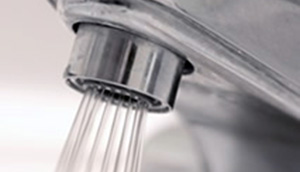Camp Lejeune
 |
From the 1950s through the 1980s, people living or working at the U.S. Marine Corps Base Camp Lejeune, North Carolina, were potentially exposed to drinking water contaminated with industrial solvents, benzene, and other chemicals.
In a Final Rule, created in January 2017 and effective in March 2017, the VA established a presumptive service connection for Veterans, Reservists, and National Guard members exposed to contaminants in the water supply at Camp Lejeune from August 1, 1953 through December 31, 1987 who later developed one of the following eight diseases:
- Adult leukemia
- Aplastic anemia and other myelodysplastic syndromes
- Bladder cancer
- Kidney cancer
- Liver cancer
- Multiple myeloma
- Non-Hodgkin's lymphoma
- Parkinson's disease
Previously established by the VA was the “Camp Lejeune Families Act of 2012”. In this act, the VA provides cost-free health care for certain conditions to Veterans who served at least 30 days of active duty at Camp Lejeune from January 1, 1957 and December 31, 1987. Qualifying health conditions include:
- Esophageal cancer
- Breast cancer
- Kidney cancer
- Multiple myeloma
- Renal toxicity
- Female infertility
- Scleroderma
- Non-Hodgkin's lymphoma
- Lung cancer
- Bladder cancer
- Leukemia
- Myelodysplastic syndromes
- Hepatic steatosis
- Miscarriage
- Neurobehavioral
Family members of Veterans who also resided at Camp Lejeune during the qualifying period may be eligible for reimbursement of out-of-pocket medical expenses related to the 15 covered health conditions. For more information visit: https://www.publichealth.va.gov/exposures/camp-lejeune/.



















